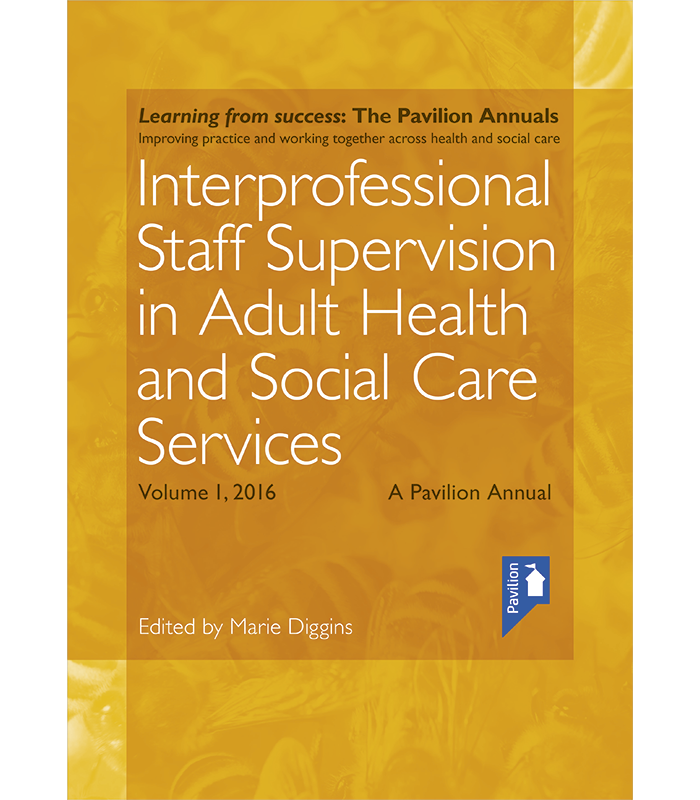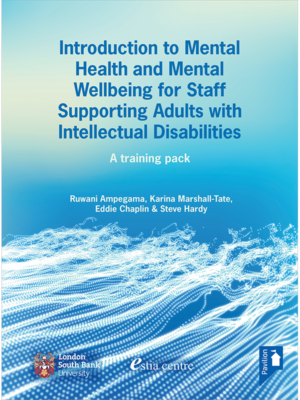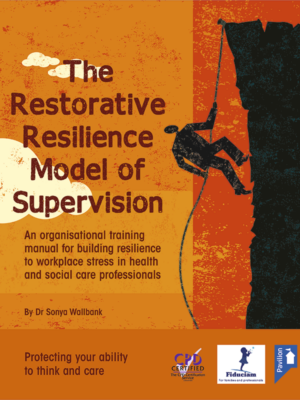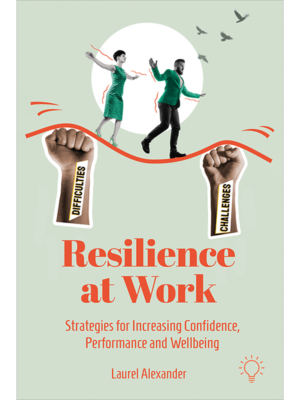Description
Health and social care services are increasingly delivered in integrated settings, but what does this mean for staff supervision?
Learning from success: The Pavilion Annuals
Improving practice and working together across health and social care
Supervising staff from a variety of backgrounds can be challenging. Yet it is an area where practice is ahead of the research, few studies have investigated how best to deliver effective supervision in integrated settings or multi-disciplinary teams. What evidence exists tends to focus on services for children, and there is a dearth of information on supervising staff working in adult services.
This annual volume looks at different models of supervision within adult services, addressing a gap in research and practice about what works when supervising staff from across different professional backgrounds, including social work, nursing, health visiting, clinical psychology, community mental health and addiction services.
But what do we mean by successful supervision within integrated and multidisciplinary settings?
How is it conducted and how do we know that it makes a difference?
Does it matter if supervisors are from a different professional background to supervisees, if the key ingredients are the same?
If we agree that supervision is important, answering such questions is crucial if we are to get supervision right for practitioners working in a range of settings and ultimately, people who use services. Interprofessional Staff Supervision in Adult Health and Social Care Services Volume 1: A Pavilion Annual 2016 will support successful supervisory practice by providing readers with a toolkit for supervision in multi-disciplinary teams based on research, practice and unusually, service user perspectives.
Audience
Interprofessional Staff Supervision in Adult Health and Social Care Services Volume 1:
A Pavilion Annual 2016 will be of interest to a wide range of service managers, professionals, frontline health and social care staff, and researchers, providing them with up-to-date research evidence, examples of innovative practice and useful tools and resources to support successful supervision.
Details
ISBN: 9781910366660
Publication: 11 December 2015
Content:
Foreword
Lyn Romeo
Editorial
Lisa Bostock, Marie Diggins
Chapter 1
Policy update and national drivers for change
Don Brand
Research overview and evidence based practice:
Chapter 2
Research review on effective supervision
Caroline Webber
Chapter 3
Interprofessional supervision: Opportunities and challenges
Allyson Davys and Liz Beddoe
Chapter 4
Interprofessional clinical supervision of staff in mental health and addiction: Do common elements exist across professions?
Marion Bogo and Jane Paterson
Innovations in practice and best practice examples in the UK and internationally:
Chapter 5
Morrison’s model
Jane Wonnacott
Chapter 6
Using restorative resilience supervision to support professionals to thrive
Sonya Wallbank
Chapter 7
Compassionate coaching in supervision
Andy Bradley
Chapter 8
Schwartz Rounds: What are they and how do they support all staff groups working in healthcare
Rhiannon Barker and Esther Flanagan
Frontline practitioner’s perspectives:
Chapter 9
Integrated LD team
Jeremy Winter
Chapter 10
Supervision across inter-professional boundaries: A practitioner’s perspective
Kevin Brett
Service user perspectives:
Chapter 11
Service user involvement in supervision
Wheelchair user Maryam on supervising her PA
Chapter 12
Tish Marrable
Research digest
Paul Ross
Tools and useful resources
Author
Dr Lisa Bostock
Lisa is an experienced social researcher, having worked in both the academic and non-government sector to deliver policy and practice-relevant research. She has worked across housing, health and social care, within children’s and adult social care and in different countries, Britain and Australia. Her specialisms include integrated working across organisational boundaries, hearing the voices and views of people who use services, applying innovative knowledge from a range of disciplines, and equipping managers and staff for new, demanding roles. Lisa is committed to ensuring that research makes a difference to outcomes for people who use services.
Lisa worked at the Social Care Institute for Excellence (SCIE) for 11 years. At SCIE, Lisa was programme lead for looked after children, including acting as vulnerable children theme lead for The Centre for Excellence and Outcomes in Children and Young People’s Services (C4EO) to produce a series of publications and guides. She conducted SCIE’s foundational research on a ‘systems’ approach to learning from mistakes in children’s services, later developed as the Learning Together programme; an approach now advocated in the new DfE ‘Working Together’ guidance. More recently, she led a programme of work on integration, using research evidence to produce an innovative online resource that supports managers and practitioners think through the factors that promote successful joint working. Lisa has commissioned and co-authored a major review of effective supervision, identifying what works best to improve outcomes. She is currently editing a book on supervision in integrated settings.
Lisa has significant expertise around the design and delivery of systematic reviews, rapid reviews, mapping and evidence scans as well qualitative research expertise. She has broadened the understanding of evidence-based practice in operational research, promoting the value of different sources of knowledge, specifically practitioner and service user knowledge as well as academic research. She has published academic papers in the following peer review journals: Children and society; Children and Youth Services Review, Health and Social Care in the Community; Journal of Integrated Care, Sociology of Health and Illness; and Social Science and Medicine.
Over the past 12 months, Lisa has worked on the following projects:
Child protection: Effective approaches to hub and spoke service provision: supporting child sexual exploitation services (University of Bedfordshire)
Criminal justice: Improving investigative and prosecution responses to child sexual exploitation (University of Bedfordshire)
Troubled families: Evaluating Think Family expansion programme (West Sussex County Council)
Transitions to adulthood: Effective approaches to working with gang-involved young people aged 18-24 years (London Borough)
Adult safeguarding: Self-neglect policy and practice (University of Sussex)
Social work education: Evaluating new models of relationship-based social work theory and practice (University of Sussex).
Education and Training
Lisa has a first class degree in Sociology with Social Policy and a PhD in Applied Social Science. She is a member of the Social Research Association.









Reviews
There are no reviews yet.